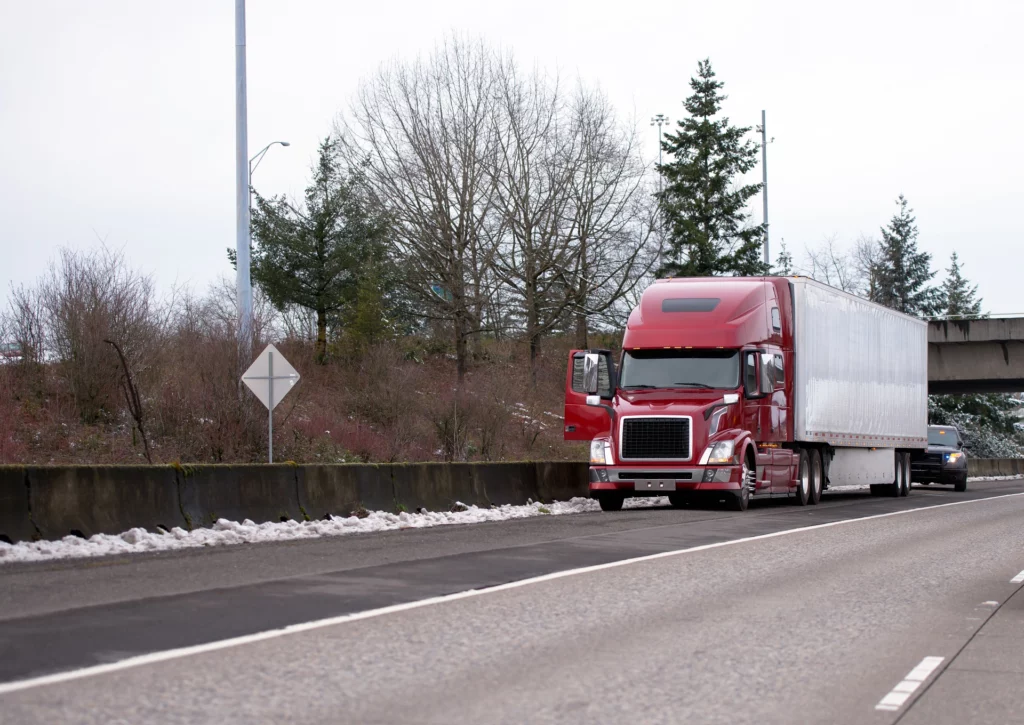How You Can Use Pre-Employment Screening Program (PSP) Reports

Wise Systems

The Pre-Employment Screening Program (PSP), an initiative by the U.S. Department of Transportation’s Federal Motor Carrier Safety Administration, represents a significant advancement in road safety and commercial driver hiring processes. It serves as a repository of crucial driver safety data, from inspections and violations to crash data.
The Pre-Employment Screening Program (PSP) report is a primary component of the PSP program, allowing last-mile delivery companies, other motor carriers, and industry service providers to access comprehensive information about a potential new hire’s safety history over the past 3 to 5 years. This guide covers the specifics of PSP and how you can leverage it as part of your hiring process.
In this article:
- What is the Pre-Employment Screening Program?
- Benefits of PSP for Motor Carriers & Industry Service Providers
- What is a PSP Report?
- PSP Report vs. Motor Vehicle Records (MVRs): What’s the Difference?
- How to Use PSP Reports in Your Hiring Process
- Maintaining a Safety Culture
- Frequently Asked Questions
What is the Pre-Employment Screening Program?
The PSP report is a safety record maintained by the FMCSA that includes a truck driver’s 5-year crash and 3-year roadside inspection history. #truckingnews #psp #fmcsa #free https://t.co/RktZaHVzKk
— CDLLife (@CDL_Life) June 17, 2023
The Pre-Employment Screening Program (PSP) is a system designed to make drivers’ safety performance information electronically available to employers, industry service providers, and drivers. The PSP was developed by the U.S. Department of Transportation’s Federal Motor Carrier Safety Administration to comply with a Congressional mandate in the Safe, Accountable, Flexible, Efficient Transportation Equity Act: A Legacy for Users, Title 49 U.S. Code, section 31150 Public Law 109-59 Section 4117.
Benefits of PSP for Motor Carriers & Industry Service Providers

The goal of PSP is to improve the quality of safety data and provide a valuable tool to inform the hiring process for commercial drivers.
According to the FMCSA, companies that screen potential new hires using PSP reports can lower driver out-of-service rates by 17% and lower crash rates by 8% compared to employers that don’t use PSP. The program also helps motor carriers:
- Improve company safety ratings such as Compliance, Safety, and Accountability (CSA) Scores
- Maintain regulatory compliance with regulations like the Federal Motor Vehicle Safety Standards (FMVSS)
- Foster a culture of safety within the company
- Minimize liability risks
What is a PSP Report?
A PSP report is essentially a special resume for drivers that includes important information regarding the driver’s safety performance, which is vital information for prospective employers when making hiring decisions. A PSP report includes:
- The driver’s roadside inspection history for the past 3 years
- Any co-driver involvement
- Violations cited during inspections within the past 3 years
- Whether a vehicle was placed out of service during an inspection
- Date and location of crashes occurring within the past 5 years
- Whether crashes resulted in injuries, fatalities, or towaways
- Notations for crashes deemed not preventable through the Crash Preventability Determination Program
- The motor carrier the driver was driving for at the time of the crash or inspection
- Data from all CDL numbers the driver has held within the past 5 years
This information is documented across all motor carriers the driver worked for during the reporting period. You can find a sample report here.
PSP Report vs. Motor Vehicle Records (MVRs): What’s the Difference?

Motor vehicle records are state-specific, containing information limited to the driver’s CDL issued by and convictions within a particular state. MVRs do not include any traffic tickets, citations, or warnings that haven’t yet been settled in court, and they don’t include any incidents that didn’t result in a conviction by the state.
Motor carriers can request MVRs by contacting the motor vehicle division in the state that issued the driver’s license. However, these records are managed by the individual states and are only updated periodically as resources allow.
A PSP report, on the other hand, provides detailed information for the past 3 to 5 years. PSP reports also include information on the original violations a driver was cited for during roadside inspections, even if those violations resulted in a different conviction. This provides a more complete picture of the driver’s safety practices and any concerns about their safety performance.
After enrolling in the Pre-Employment Screening Program, employers can access PSP reports online, in one place, without the need to request records from individual states. PSP records are updated approximately once every month with the most recent data from the FMCSA MCMIS database.
How to Use PSP Reports in Your Hiring Process

PSP is a voluntary program for drivers and motor carriers. Prospective employers who are enrolled and want to request a driver’s PSP record must first obtain the driver’s authorization.
The FMCSA has required disclosure and authorization language that must be used, which you can find through the enrollment wizard if enrolling online or on the paper enrollment agreement.
There’s a different agreement for motor carriers and industry service providers. You can access the appropriate agreement at the links below:
You can request a PSP report as part of your initial screening process for new hires, either at the start of the interview process or as part of your full background check process when finalizing a hire.
In either case, PSP reports should be a vital part of your hiring process. According to the American Transportation Research Institute, having a previous crash increases a driver’s likelihood of being involved in another crash by 113%.
The Predicting Truck Crash Involvement report breaks down the increased likelihood of a second accident based on the causes involved in the first. Drivers who receive a Failure to Yield Right-of-Way violation have an increased crash likelihood of 141 percent, while drivers who receive a Failure to Use / Improper Signal conviction have an increased crash likelihood of 116%.
Given the significant risk of subsequent crashes, particularly for drivers who commit certain violations, using the PSP report data to inform hiring decisions is an invaluable tool for directly increasing your company’s overall safety.
Maintaining a Safety Culture
Mobile Manager app from Wise Systems shares delivery status and ETAs with managers, allowing them to follow driver routes right from their phone and stay in-the-know on route progress. Learn more about Mobile Manager here! https://t.co/64G6aDZ1yb pic.twitter.com/LnawQyJ3yJ
— Wise Systems (@goWiseSystems) March 1, 2023
PSP reports can help you make informed hiring decisions to build a safety-conscious workforce. It’s important to continue to foster a culture of safety throughout your organization.
The Wise Systems delivery automation platform is a full suite of tools enabling you to monitor driver performance and fleet efficiency. With detailed analytics and reporting powered by Wise Systems’ AI driven Dynamic Optimization Engine (DOE), you’ll have a complete picture of safety and performance, allowing you to identify and address safety concerns before they become significant problems.
Request a demo today to learn more.
Frequently Asked Questions
How do you enroll in the Pre-Employment Screening Program?
You can enroll your company in the PSP online or by downloading a paper enrollment form. There are different forms depending on the type of business:
If you opt for the paper-based enrollment option, you must return the agreement to NIC Federal, either by email, fax, or mail to the contact information provided on the PSP enrollment form.
How much does PSP cost?
For motor carriers with 100 or more power units, the PSP Monthly Account Holder annual subscription fee is $100. For motor carriers with 99 or fewer power units, the subscription fee is $25.00.
What shows on a PSP report?
A PSP report includes data related to a driver’s:
- Roadside inspection history for the past 3 years
- Violations cited during inspections for the past 3 years
- Crash history for the past 5 years
- Details related to crashes occurring during the past 5 years

